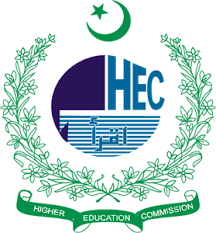The Methodology and Approach of Imam Qatada ibn Dieama in his Book “Al nasikh wa al-Mansookh fi Kitab Allah Taalah”
کتاب "الناسخ والمنسوخ فی کتاب اللہ تعالی" میں امام قتادہ بن دعامہ کا منہج و اسلوب
Abstract
The discussion on the various branches of Ulum al-Quran (Quranic Sciences) began right from the revelation of the first wahy (divine inspiration). The senior Sahabah (Companions of the Prophet) emphasized its importance on various occasions. For instance, Sayyidun Ali al-Murtaza (may Allah be pleased with him) highlighted the significance of Nasikh wa Mansukh (abrogating and abrogated verses) when he warned a preacher about the dangers of lacking knowledge in this field, saying, "You have perished and caused others to perish!" However, it was during the era of the Tabiin (Successors) and Tabiʿ al-Tabiʿin (their successors) that this knowledge was systematically compiled into written form and established as an independent discipline. Numerous works were authored on the subject. Understanding Nasikh wa Mansukh was deemed essential for comprehending Tafsir al-Quran (Quranic exegesis) and deriving rulings (hukam). In fact, a mufti (Islamic jurist) was not permitted to issue fatawa (legal verdicts) without mastering this science. Many scholars contributed to this field, each adopting their own methodology. Among them was Qatadah ibn Diʿamah, whose book"Al-Nasikh wa al-Mansukh fi Kitab Allah Taala" holds a foundational status in this discipline. It is considered the Umm al-Kitab (mother book) of this science, and his work is regarded as the earliest known compilation on the subject. It would not be an exaggeration to say that “there is no book in this field that has not benefited from his work. Similarly, in Tafsir literature, many exegetes have cited the narrations transmitted by Qatadah ibn Diʿamah with great importance.
Keyword: Nasikh wa Mansukh, Quranic Sciences, Foundational reference work, Abrogating and Abrogated Verses,









